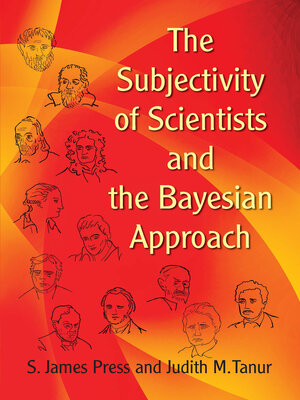The Subjectivity of Scientists and the Bayesian Approach
ebook ∣ Dover Books on Mathematics
By S. James Press

Sign up to save your library
With an OverDrive account, you can save your favorite libraries for at-a-glance information about availability. Find out more about OverDrive accounts.
Find this title in Libby, the library reading app by OverDrive.



Search for a digital library with this title
Title found at these libraries:
| Loading... |
"Press and Tanur argue that subjectivity has not only played a significant role in the advancement of science but that science will advance more rapidly if the modern methods of Bayesian statistical analysis replace some of the more classical twentieth-century methods." — SciTech Book News.
"An insightful work." ― Choice.
"Compilation of interesting popular problems … this book is fascinating." — Short Book Reviews, International Statistical Institute.
Subjectivity ― including intuition, hunches, and personal beliefs ― has played a key role in scientific discovery. This intriguing book illustrates subjective influences on scientific progress with historical accounts and biographical sketches of more than a dozen luminaries, including Aristotle, Galileo, Newton, Darwin, Pasteur, Freud, Einstein, Margaret Mead, and others. The treatment also offers a detailed examination of the modern Bayesian approach to data analysis, with references to the Bayesian theoretical and applied literature. Suitable for lay readers as well as science specialists, this survey will also appeal to historians of science and those interested in knowing more about the Bayesian approach.
"An insightful work." ― Choice.
"Compilation of interesting popular problems … this book is fascinating." — Short Book Reviews, International Statistical Institute.
Subjectivity ― including intuition, hunches, and personal beliefs ― has played a key role in scientific discovery. This intriguing book illustrates subjective influences on scientific progress with historical accounts and biographical sketches of more than a dozen luminaries, including Aristotle, Galileo, Newton, Darwin, Pasteur, Freud, Einstein, Margaret Mead, and others. The treatment also offers a detailed examination of the modern Bayesian approach to data analysis, with references to the Bayesian theoretical and applied literature. Suitable for lay readers as well as science specialists, this survey will also appeal to historians of science and those interested in knowing more about the Bayesian approach.






